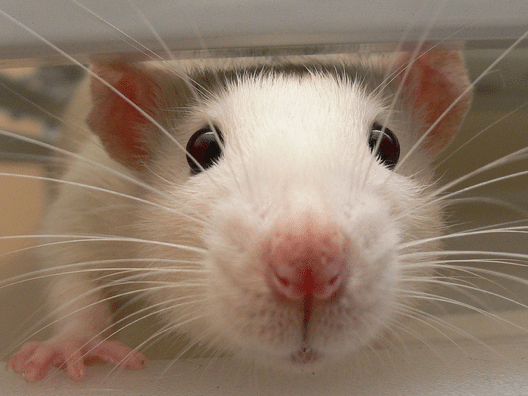Though we spend a lot of time on this blog talking about keeping animals out of your home, many people are perfectly content to have critters living among them. We’re not talking about trying to domesticate wild animals (which a bad idea for several reasons); we’re talking about obtaining small companion animals that have been bred specifically for tameness. Rodents, like “fancy” rats and mice, hamsters, and guinea pigs can make great pets, and they’re far from the only option. Rabbits, lizards, tortoises, chinchillas…the list goes on and on.
It’s summertime now, which means that young children and teens tend to have a lot of idle time on their hands. Don’t be surprised, then, if your kid starts asking for a pet to keep them company and help pass the time. But is a small animal really the right choice for your family? Here are some things to consider:

The Advantages Of Small Animals
(1) They don’t require a lot of space.
Small animals are usually just fine living in cages—and in most cases, it’s better for their safety and mental health for them to do so. Dogs, on the other hand, often need to spend time outside every day for exercise, play, and toileting, and cats can get bored and depressed if they’re cooped up for too long. A small animal doesn’t need a yard; in fact, most of them are perfectly content to spend their entire lives indoors! This makes them great options for folks who live in apartments or townhouses. It can also make them nice options for kids, as the small animal’s cage/tank can be set up in a bedroom or playroom, away from the rest of the house.
(2) They don’t need as much veterinary care as larger pets.
In most cases, a small animal won’t need the annual vaccinations that larger pets are legally required to have (laws vary between municipalities, so double-check that your pets are sufficiently covered), and they don’t need the regular checkups and bloodwork that most vets recommend for dogs and cats. Small animals that stay inside are also not at risk for contracting fleas or becoming infected with parasitic worms. Simply put, medical care for small animals is usually done on an “as-needed” basis instead of focusing on preventative care.
(3) Despite their diminutive size, they can still be beloved family members.
YouTube is chock-full of videos of small animals doing silly or cute things; whether it’s a chinchilla reveling in its dust bath, a gecko seeming to smile happily as it enjoys a treat, or a rat scaling a vertical surface with expert precision, small pets are anything but boring. People enjoy owning small animals for the same reasons that they enjoy owning larger or more exotic pets: companionship, the opportunity to care for another living creature, and the hours of entertainment that pets can provide. Good things come in small packages, so even though you can’t really play “fetch” with a rabbit, your bunny’s habit of leaping and dancing around the room when she’s excited may still melt your heart!

The Disadvantages Of Small Animals
(1) They’re living creatures, not toys.
This should be obvious, but it apparently still needs to be said: when you adopt a pet, regardless of its size or species, you are committing yourself to caring for that animal for as long as it lives. A hamster or a fancy rat is not something that you can just get rid of once your kids become bored with it or you grow tired of taking care of it. Yes, there are circumstances in which rehoming an animal really is best for everyone involved, but that should always be an absolute last resort. Make sure that the entire family understands the gravity of the situation before you even consider adding an addition!
(2) You need to plan accordingly for their lifespan.
In many cases, small animals don’t live very long; rats, mice, and hamsters usually don’t last more than three years or so. Anyone who’s ever lost a companion animal knows how emotionally devastating it can be, and small pets are no exception to this phenomenon. The death of a family pet is often a fine opportunity to teach young children about death and grieving, but if you think that this experience might be too intense for you or your family, then it might be wise to seek out a different kind of animal. Speaking of which…
Not all small animals have short lifespans. Guinea pigs often live between five and eight years, rabbits and ferrets up to ten years, and chinchillas have been known to last 15 to 20 years in captivity. And that’s just mammals; hermit crabs often see their 30th birthday, and tortoises can still be happy healthy at age 40. So please think about the future! Your 13-year-old daughter may be excited about having a guinea pig right now, but what’s going to happen to her pet when it’s time for her to go to college? Your 8-year-old son may be going through a turtle obsession at the moment, but is he still going to be enthusiastic about his pet tortoise when he’s in his mid-30s and starting a family of his own? It’s critical that you know what you’re getting into before you make such a huge commitment.
(3) They require attention and care just like any other pet.
Just because an animal lives in a cage doesn’t mean it should spend all of its time in a cage! Nearly all small animals enjoy being given opportunities to “roam free” inside the house (or at least inside a single room) and receive one-on-one attention from their owners. Playtime for small animals should be supervised (lest the critter get into something that it shouldn’t, put itself in harm’s way, or destroy your property), so you’ll have to budget time for this into your day.
You also can’t leave small animals entirely to their own devices. Cages, toys, and dishes should be cleaned regularly (once a week is ideal). Litter boxes need to be scooped and refreshed at least once a day. Some small animals need regular brushing, bathing, or nail trimming, and you may even need to take your pet to the vet from time to time if you sense that something is wrong. Spaying or neutering isn’t always necessary for small mammals, but it can curb sexually aggressive behavior in rabbits and reduce the risk of certain health problems in ferrets.
Pet ownership isn’t always fun—it can be frustrating, gross, and/or expensive. Small pets may be less of a hassle than larger pets, but don’t make the mistake of assuming that they’re never a hassle.
■■■
So, is a small animal the right choice for you and your family? That’s a question that only you can answer. Do your research, weigh the pros and cons, and take plenty of time to really think it over. Adopting a pet is never something to rush into! After some soul-searching, you may find that you and your family really would love to own a small pet…or you may decide that you’d very much prefer it if woodland critters stayed out of your house!
Photos courtesy of Rebecca Lai and Starsandspirals on Flickr






